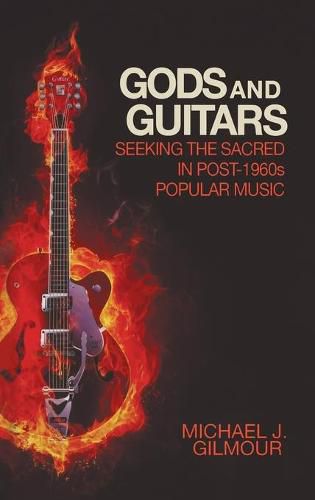Readings Newsletter
Become a Readings Member to make your shopping experience even easier.
Sign in or sign up for free!
You’re not far away from qualifying for FREE standard shipping within Australia
You’ve qualified for FREE standard shipping within Australia
The cart is loading…






Though American attitudes toward religion changed dramatically during the 1960s, interest in spirituality itself never diminished. If we listen closely, Michael Gilmour contends, we can hear an extensive religious vocabulary in the popular music of the decades that followed-articulating each generation’s spiritual quest, a yearning for social justice, and the emotional highs of love and sex. Probing the lyrical canons of seminal artists including Cat Stevens, the Rolling Stones, Bob Dylan, Eric Clapton, Joni Mitchell, Neil Young, U2, Ozzy Osbourne, Pearl Jam, Madonna, and Kanye West, Gilmour considers the ways-and reasons why-pop music’s secular poets and prophets adopted religious phrases, motifs, and sacred texts.
$9.00 standard shipping within Australia
FREE standard shipping within Australia for orders over $100.00
Express & International shipping calculated at checkout
Though American attitudes toward religion changed dramatically during the 1960s, interest in spirituality itself never diminished. If we listen closely, Michael Gilmour contends, we can hear an extensive religious vocabulary in the popular music of the decades that followed-articulating each generation’s spiritual quest, a yearning for social justice, and the emotional highs of love and sex. Probing the lyrical canons of seminal artists including Cat Stevens, the Rolling Stones, Bob Dylan, Eric Clapton, Joni Mitchell, Neil Young, U2, Ozzy Osbourne, Pearl Jam, Madonna, and Kanye West, Gilmour considers the ways-and reasons why-pop music’s secular poets and prophets adopted religious phrases, motifs, and sacred texts.